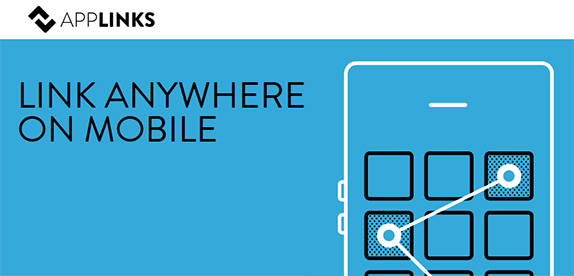Facebook just unveiled “App links”, an open source solution that works across all the major mobile platforms, to solve a longstanding problem. This is perhaps the biggest and boldest move we have seen Facebook take, in mobile. Why? Well, because it aims to fix a problem that has been lingering over mobile, ever since the inception of the app store – interlinking of applications. Remember the time your phone took you to the web browser for seeing a Facebook photo instead of the app, even when the first party app was installed? The company aims to solve this exact problem by directly linking users to apps, or part of them, hence enabling the “Internet of Apps”. Think of it as the web hyperlink, but for apps, so you will tend to start browsing apps rather than websites.
Sounds familiar? It should, for every one of us using Android phones, or even iOS or Windows Phone devices(although to a lesser extent in both). With Android’s solution being robust, a lot of popular apps have enabled “intents” that enable interlinking between apps. While all of them(the OS makers) have implemented this feature at the OS level, the execution remains very different, which is hence a major pain for developers targeting all the major platforms. Facebook’s App links will help these developers implement a common code to their content, which will work across all the targeted platforms and will directly take users to their apps for a better tailored experience.
The way this works is pretty simple. The app links are embedded on the web pages(content) as metadata, which in turn can be used by other apps to find out which app the link should take you to. This is slightly different from the URI scheme method that the OS level interlinking resorts to. The actual trigger happens on the website and not on the device, so cross platform targeting is a lot easier. But Facebook tells us you don’t even need a website to use the metadata, as it can be hosted on cloud platforms like Parse(a Facebook company now), which allow you to host anything from code to pieces of app logic. This exact implementation puts Facebook’s “App links” ahead of the other OS-level solutions and enables easier, and most importantly, a better user experience. Developers can choose to divert the user to the app, if installed, to the app store, if it’s not, or even choose to just display the web page as the content, which we hope, is a fallback option if things go haywire.
In the near future, if Facebook manages to gather enough forces behind this movement(spoiler: there are already a lot of high profile partners), the “Internet of Apps” will soon become a reality as mobile web slowly fades into the background as the secondary experience on mobile. With App links, Facebook now has the potential to completely change the mobile game, which still has a lot of unexplored avenues and undiscovered business models. Will this huge bet pay off? Stay tuned to the blog, as we track the platform’s progress, and let us know your thoughts, in the comments section below. Check the source link for more information.
Source App Links


